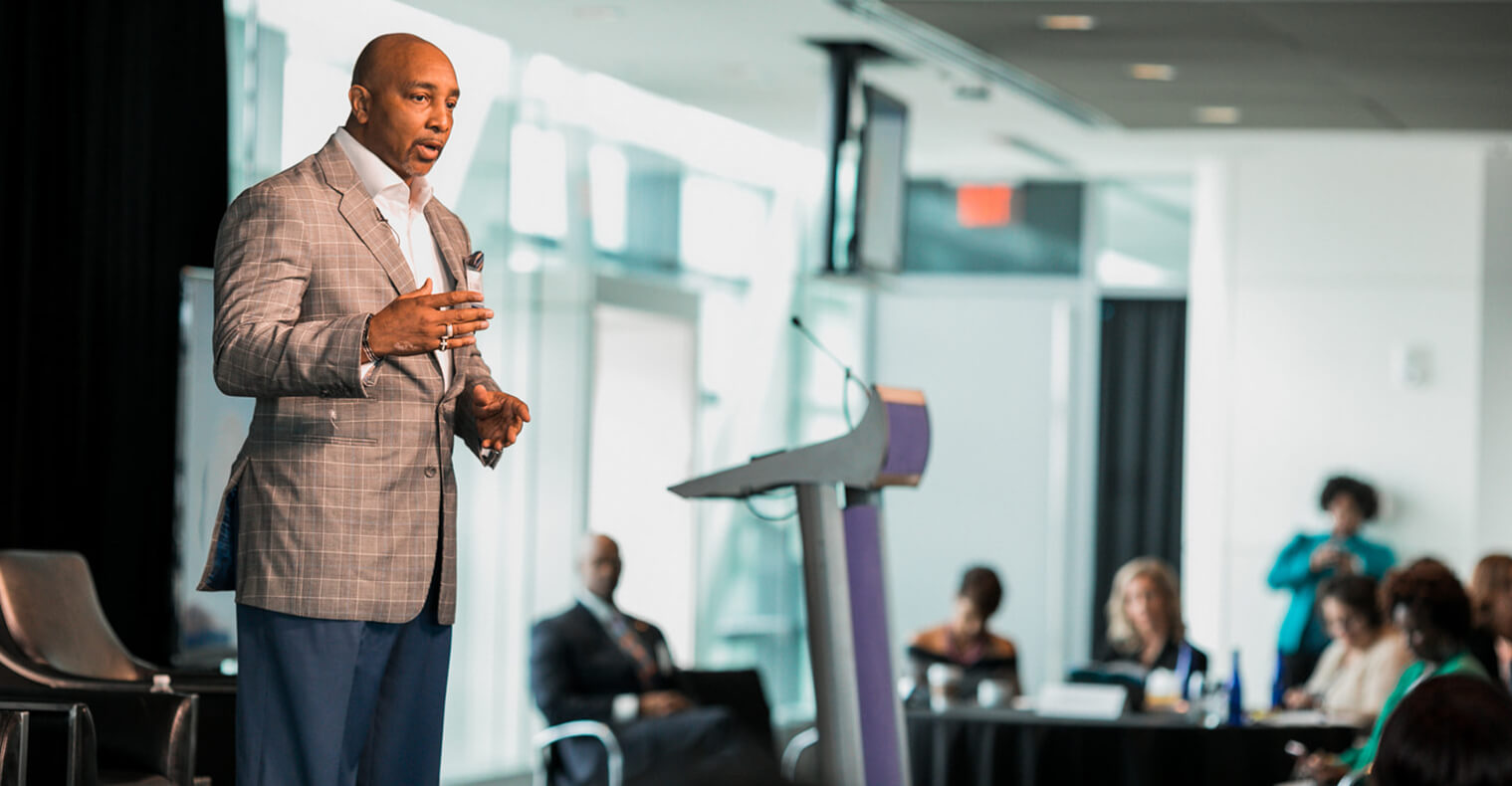In today’s fast-evolving business landscape, strong leadership is crucial for achieving success. Leaders face increasing challenges, from technological advancements to managing diverse teams, making it vital to continuously enhance their skills. Executive coaching seminars offer a unique opportunity for leaders to refine their capabilities, improve decision-making, and gain valuable insights into their strengths and weaknesses.
By participating in these seminars, leaders can elevate their skills and unlock their full potential, driving meaningful change within their organizations.
Why executive coaching seminars are essential?
In an increasingly competitive and dynamic business landscape, the role of effective leadership has never been more critical. Executive coaching seminars serve as essential tools for leaders seeking to navigate complex challenges and foster a culture of innovation within their organizations. Here are several reasons why these seminars are indispensable:
Adaptation to change
The business environment is constantly evolving due to technological advancements and market shifts. Executive coaching equips leaders with strategies to adapt and thrive in this changing landscape.
Enhanced Decision-making
Effective leadership relies on strong decision-making abilities. Coaching seminars provide frameworks and insights that help leaders make informed choices that align with their organization’s goals.

Cultivating emotional intelligence
Leaders with high emotional intelligence are better equipped to manage relationships and inspire their teams. Executive coaching focuses on developing self-awareness and interpersonal skills, crucial for successful leadership.
Conflict resolution
Disputes can arise within any organization. Coaching seminars teach leaders effective conflict resolution techniques, enabling them to maintain a positive work environment and promote collaboration.
Enhancing communication skills
Effective and clear communication is crucial for successful leadership. Executive coaching seminars offer tools and practices that enhance leaders’ communication abilities, facilitating better interactions with their teams.
Personal and professional advancement
Continuous development is essential for any leader. Coaching seminars provide a structured approach to personal growth, helping leaders identify their strengths and areas for improvement.
Networking opportunities
These seminars also create a platform for leaders to connect with peers, share experiences, and build valuable professional networks that can lead to future collaborations and support.
In summary, executive coaching seminars are essential for leaders aiming to enhance their effectiveness, adapt to changing environments, and foster a culture of growth and innovation within their organizations. By investing in these programs, leaders can unlock their full potential and drive significant impact in their roles.
Types of executive coaching seminars
Executive coaching seminars come in various formats and structures, each designed to cater to specific needs and learning preferences. Here are some common types of executive coaching seminars:
Short-term seminars
- Duration: Typically a few hours to a couple of days.
- Focus: Specific topics such as communication skills, conflict resolution, or time management.
- Target audience: Leaders looking for quick insights or refreshers on particular skills.
Long-term seminars
- Duration: Several weeks to months, often involving multiple sessions.
- Focus: comprehensive leadership development, including deep dives into various competencies.
- Target audience: Leaders seeking extensive growth and transformation over time.
In-person seminars
- Format: Traditional classroom setting with live instruction.
- Benefits: Opportunities for face-to-face interaction, networking, and hands-on activities.
- Target audience: Leaders who prefer direct engagement and collaborative learning experiences.
Online seminars
- Format: Virtual sessions conducted via video conferencing platforms.
- Benefits: Flexibility and accessibility, allowing participation from remote locations.
- Target audience: Leaders who may have scheduling conflicts or prefer online learning environments.
Group coaching seminars
- Format: Sessions involving multiple participants, often from different organizations.
- Focus: Collaborative learning through shared experiences and peer feedback.
- Target audience: Leaders interested in networking and learning from diverse perspectives.
One-on-one coaching seminars
- Format: Personalized coaching sessions tailored to individual needs.
- Focus: Specific challenges or goals relevant to the individual leader.
- Target audience: Leaders seeking customized support and direct feedback from a coach.
Industry-specific seminars
- Focus: Tailored content addressing unique challenges and trends within specific industries (e.g., healthcare, finance, technology).
- Target audience: Leaders looking to enhance their skills in a context relevant to their field.
Retreats and intensive workshops
- Format: Extended, immersive sessions that may take place over a weekend or several days.
- Benefits: In-depth exploration of leadership topics, team-building activities, and reflection time.
- Target audience: Leaders seeking a transformative experience away from the regular work environment.
By understanding the different types of executive coaching seminars available, leaders can choose the format that best aligns with their goals, preferences, and schedules, ultimately enhancing their leadership skills and effectiveness.

Process of executive coaching seminars
The process of executive coaching seminars typically involves several structured phases designed to maximize learning and development for participants. Here’s a breakdown of the key stages:
Preparation phase
- Needs assessment: Before the seminar, a thorough assessment is conducted to identify the specific needs, goals, and challenges of the participants. This may involve surveys, interviews, or consultations with organizational leaders.
- Setting objectives: Clear, measurable objectives are established based on the needs assessment. These objectives guide the seminar content and ensure alignment with participants’ expectations.
Design and development
- Curriculum creation: Based on the objectives, a customized curriculum is developed, incorporating relevant topics, frameworks, and activities tailored to the audience.
- Selection of trainers: Qualified coaches or facilitators with expertise in the identified areas are chosen to lead the seminar, ensuring a high-quality learning experience.
Implementation of the seminar
- Kick-off session: The seminar typically begins with an introductory session to outline objectives, set expectations, and create a comfortable learning environment.
- Interactive learning: Throughout the seminar, participants engage in various activities such as discussions, case studies, role-playing, and group exercises designed to enhance their understanding and application of concepts.
- Feedback Mechanisms: Continuous feedback is encouraged during sessions, allowing participants to reflect on their learning and adjust their approaches in real-time.
Coaching techniques
- Personal reflection: Participants are often guided through self-assessment exercises to enhance self-awareness and identify personal strengths and areas for improvement.
- Peer coaching: Opportunities for participants to coach each other foster collaboration and enable the sharing of diverse perspectives and experiences.
- Action planning: Participants develop actionable plans to implement the skills and insights gained during the seminar in their daily roles.
Evaluation and follow-up
- Post-seminar assessment: After the seminar, participants may complete evaluations to assess their learning outcomes and provide feedback on the seminar’s effectiveness.
- Follow-up coaching: Many programs include follow-up sessions or check-ins to reinforce learning, provide additional support, and track progress towards the established objectives.
- Continuous improvement: Insights from evaluations and participant feedback are used to refine future seminars and enhance the coaching process.
By following this structured process, executive coaching seminars effectively facilitate skill development, enhance leadership capabilities, and empower participants to drive positive change within their organizations.
